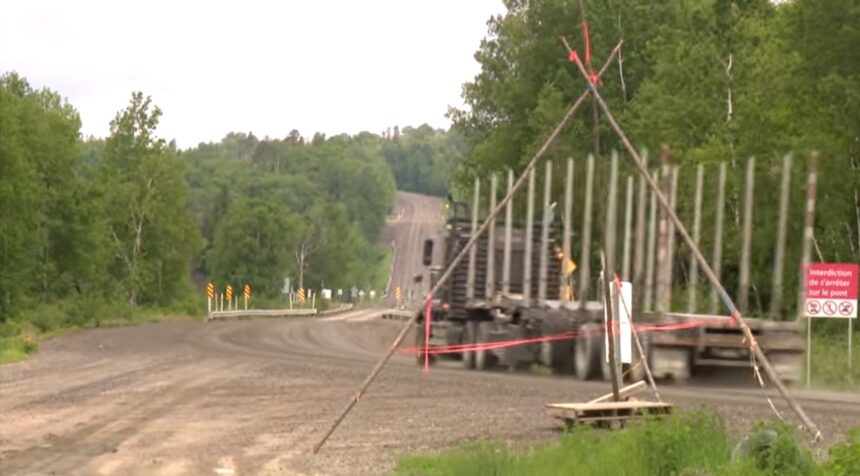Quebec Premier François Legault announced Thursday afternoon that his government has abandoned a proposed law to reform the province’s forestry industry. Legault made the announcement at the annual conference of the Quebec Federation of Municipalities. The announcement follows weeks of opposition from a variety of groups, led by the Assembly of First Nations of Quebec and Labrador (AFNQL) and including the Innu, Atikamekw, and Algonquin First Nations. Several major labour unions, nature organizations, and hunting/fishing and outdoorsmanship advocates also spoke against the proposed law. “This is a small victory, but above all, it is only the first step,” the AFNQL said in a post on Facebook. “Now, words must turn into action. The government has the opportunity to co-construct, with all stakeholders, a truly sustainable forestry regime.” The AFNQL stressed their willingness to work not just with Chiefs and community members, but “all stakeholders,” including unions, outfitters, nonprofit hunting-fishing organizations (called ZECs in Quebec) and environmental organisations. The controversial law proposed a division of public lands into three separate zones for forestry, including one protected zone, one zone for resource development and a third zone mixing the two. Officially called Bill 97, the proposed legislation drew strong opposition from First Nations leaders even before it was tabled in April. Read more: Opposition grows to proposed forestry bill in Quebec Bill 97: As tension rises, Quebec ministers return to the table with First Nations leaders Since that time, it has provoked a variety of blockades in the forestry-heavy areas of Atikamekw and Innu territories and protests in cities as far south as Montreal. It has likewise generated rancour from the AFNQL, who withdrew from negotiations with Quebec over the Bill this summer. Jean-François Simard, the new minister of Natural Resources and Forests, has reportedly been given the mandate to start from scratch. Simard replaced Maïtée Blanchette Vézina, who was the minister who tabled Bill 97 until she was shuffled out of Legault’s cabinet last week. Following her removal from cabinet, Blanchette Vézina resigned from the ruling Coalition Avenir Québec party on Sept. 18, and called for Legault to step down. Dave Petiquay has been one the most active and ardent opponents of Bill 97. As part of the group Mamo First Nations, which unites members of Atikamekw, Innu, and Abenaki nations in opposition to Bill 97, Petiquay has been at the front lines of forestry blockades all summer. He told APTN News he’s glad to have an opportunity for a break. “The reaction was that we were happy, but we knew that the fight was such that we had to start over,” he said, “because, with the new regime they want to implement, we will surely disagree if we’re not a part of that discussion.” Petiquay, who is Atikamekw from the community of Wemotaci, said his people never ceded the forest they’re defending and he doesn’t want to see it handed over to logging companies. Instead, he said the forest should be managed in a less-invasive, more traditional style that gives trees the time to grow to maturity. “They’re transporting chopsticks. It’s not mature wood. They’re small pieces. A tree has to reach maturity. It takes at least 45 years. There’s never enough time for a tree to reach maturity. There are places where we have about 4 or 5 generational cuts in certain areas. It’s already been logged 3 or 4 times here.” Petiquay encouraged supporters to come to a protest scheduled for Quebec City on September 30 in conjunction with MNAs’ return to Quebec’s National Assembly, which Legault prorogued on September 10. Continue Reading
Quebec premier withdraws controversial bill to overhaul the forestry industry

Leave a Comment










